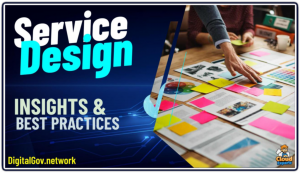Making UK Council Websites Accessible (including WCAG 2.2) – Accessibility Testing Tools
Web accessibility tools have emerged as vital solutions to help public sector bodies comply with legislation.
 UK government agencies are mandated to comply with legislation that requires public sector websites and mobile apps to meet the Web Content Accessibility Guidelines (WCAG) standards.
UK government agencies are mandated to comply with legislation that requires public sector websites and mobile apps to meet the Web Content Accessibility Guidelines (WCAG) standards.
These regulations, in alignment with the Equality Act 2010, ensure digital services are accessible to all users, including those with disabilities, by being perceivable, operable, understandable, and robust.
Additionally, agencies must publish and regularly update an accessibility statement detailing compliance status and any inaccessible content.
Web accessibility tools have emerged as vital solutions to help public sector bodies comply with this legislation. These tools streamline the process of making websites and mobile apps perceivable, operable, understandable, and robust for all users, including the 1 in 5 UK citizens with disabilities.
Silktide
Silktide is a comprehensive web governance platform designed to enhance website quality, accessibility, and compliance for large organizations, including UK government agencies.
It automates testing and monitoring across key areas such as accessibility, content quality, SEO, user experience, and data privacy, helping agencies meet the Public Sector Bodies (Websites and Mobile Applications) Accessibility Regulations 2018 and WCAG 2.2 AA standards.
Its primary tools, Silktide Monitor and Silktide Prospect, provide automated scans for issues like missing alt text, poor color contrast, broken links, and inaccessible PDFs, offering clear recommendations and code examples to resolve them.
Wordpress and Drupal
The platform integrates with content management systems (CMS) like WordPress and Drupal, enabling accessibility fixes during development, and supports mobile and PDF accessibility testing. Silktide’s user-friendly interface provides detailed reports and customizable dashboards, prioritizing issues by severity and tracking progress to ensure compliance with legal obligations, including the Equality Act 2010.
It also offers training resources, a free Chrome accessibility checker, and manual testing guidance to complement automation, ensuring usability for disabled users.
AccessiBe
AccessiBe, an AI-powered digital accessibility solution, offers tools like accessWidget and accessFlow to help UK government agencies achieve and maintain compliance efficiently, addressing both technical and procedural requirements.
AccessiBe’s accessWidget automates accessibility remediation by scanning and fixing common WCAG violations on websites, such as missing alt text, insufficient color contrast, or lack of keyboard navigation.
By adding a single line of JavaScript code, agencies can deploy this tool across public-facing and internal websites, enabling real-time adjustments like text resizing or enhanced focus indicators to improve usability for users with visual, motor, or cognitive impairments.
This automation is particularly valuable for agencies managing large or complex digital platforms, as it reduces manual remediation efforts and ensures ongoing compliance as new content is added, aligning with WCAG 2.2 AA standards for perceivable and operable content.
DevOps Flow
For more complex accessibility issues, AccessiBe’s accessFlow provides developers with code-level solutions, offering copy-and-paste snippets to address problems like inaccessible forms or non-compliant ARIA attributes. Integrated into continuous integration/continuous deployment (CI/CD) pipelines, accessFlow enables government IT teams to embed accessibility into the development process, ensuring new features and updates remain compliant.
This is critical for services entering public beta, where accessibility audits are mandatory, and helps agencies tackle issues like inaccessible PDFs or forms, which are common compliance failures in public sector websites.
AccessiBe also supports the creation and maintenance of accessibility statements, a legal requirement under UK regulations. These statements must outline compliance status, identify inaccessible content, and provide contact details for reporting issues, following Government Digital Service (GDS) guidelines.
AccessiBe’s tools simplify this process by documenting remediation efforts and facilitating the provision of alternative formats, such as large print or braille versions, helping agencies meet transparency obligations and avoid penalties, such as being publicly named by the Central Digital and Data Office (CDDO).
User Feedback
To ensure genuine usability, AccessiBe incorporates user feedback mechanisms within accessWidget, allowing users to report accessibility issues directly. This aligns with the Equality Act 2010’s requirement for reasonable adjustments and supports agencies in passing GDS accessibility audits. By addressing user feedback, agencies can prioritize fixes and enhance inclusivity, reducing the risk of complaints or legal action, as seen in cases like the £5,000 settlement against the Student Loans Company for inaccessible forms.
Additionally, AccessiBe’s reporting tools provide detailed WCAG compliance reports, enabling agencies to proactively address issues before GDS audits and demonstrate compliance efforts to avoid enforcement actions from the Equality and Human Rights Commission (EHRC).
AccessiBe further aids compliance by offering training resources to educate government staff, including developers, content creators, and managers, on WCAG principles and best practices.
This builds internal capacity to sustain accessibility, aligning with the GOV.UK Service Standard’s emphasis on ongoing efforts. For agencies claiming exemptions due to “disproportionate burden,” AccessiBe’s cost-effective automation reduces the need for such exemptions by minimizing remediation costs, encouraging full compliance even for resource-constrained organizations.
End to End Testing Capability
While AccessiBe streamlines compliance, it is not a complete solution. Manual testing with disabled users remains essential to ensure usability beyond technical fixes, as compliance does not always guarantee accessibility. Third-party content, such as legacy PDFs, may require additional effort to provide accessible alternatives or justify exemptions in the accessibility statement.
By combining AccessiBe’s automation with user testing, staff training, and continuous monitoring, UK government agencies can achieve robust compliance, enhance inclusivity for the 1 in 5 UK citizens with disabilities, and reduce legal and reputational risks. For tailored guidance on integrating AccessiBe with specific government platforms, further details on the platform or service would allow for a more customized approach.




